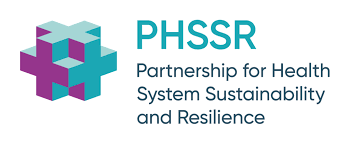تحت رعاية سموّ الشيخ خالد بن محمد بن زايد آل نهيان، ولي عهد أبوظبي رئيس المجلس التنفيذي لإمارة أبوظبي
Under the Patronage of His Highness Sheikh Khaled bin Mohamed bin Zayed Al Nahyan, Crown Prince of Abu Dhabi and Chairman of Abu Dhabi Executive Council
Breakthrough discovery offers hope for reducing infections in cystic fibrosis patients
University of Queensland researchers have identified an opportunity to reduce infections in people living with cystic fibrosis.
Professor Matt Sweet, Dr Kaustav Das Gupta and Dr James Curson from UQ's Institute for Molecular Bioscience have discovered a fault in the bacteria-killing function of immune cells in people with CF and a potential way to get around it.
CF is a chronic disease in which defects in the CFTR (cystic fibrosis transmembrane conductance regulator) channel cause a build-up of mucus in the lungs, airways and digestive system, leading to recurring infections.
Professor Sweet said the team has found that in people with CF, immune cells called macrophages are defective in a zinc pathway that the body uses to kill bacteria.
One way that macrophages destroy bacteria is by poisoning them with toxic levels of metals such as zinc.
We discovered that the CFTR ion channel is crucial to the zinc pathway and because it doesn't work properly in people with CF, it may partly explain why they're more susceptible to bacterial infections."
Professor Matt Sweet, UQ's Institute for Molecular Bioscience
Importantly, the researchers also identified a zinc transport protein that can restore the macrophages' ability to kill bacteria when the CFTR protein is not working.
"Our goal now is to deliver this zinc transport protein to macrophages in people with CF with the expectation that it would reactivate their immune response and reduce infections," Professor Sweet said.
Around 3,600 Australians live with cystic fibrosis, which can reduce life expectancy to an average of 47 years.
Professor Peter Sly at UQ's Child Health Research Centre, a pediatric respiratory physician and key collaborator on the project, said discovering more about how CF affects the immune system is key to patient care.
"People with CF have a hyper inflammatory state in their airways and are very susceptible to bacterial infections but frequent treatment with antibiotics can often lead to antibiotic-resistant infections," Professor Sly said.
"Current treatments can restore many aspects of CFTR function but they don't resolve or prevent lung infections so there is a need to restore immune functions."
The study was completed in collaboration with Professor Mark Schembri from IMB.
It is published in the journal Proceedings of the National Academy of Sciences (PNAS).
Source: University of Queensland






































